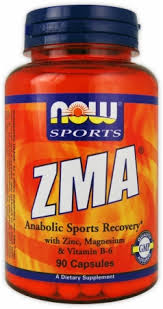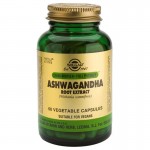By Admin – Steroidal.com
It is not secret that having a solid nutrition program can have drastic positive effects on body composition. Whether it be losing excess body fat, adding lean muscle mass or wishing to increase strength your diet is often key to your success and should be the driving force behind your goals. Consuming a diet rich in protein is paramount to building lean muscle mass in men and women, as well as carbohydrate and fat sources having their place in a well balanced diet. But what if we want to increase testosterone levels via nutritional approaches?
Wanting to increase natural testosterone levels can be because of a wide range of factors. Age, lifestyle, disease, sport or post anabolic steroid use, having a healthy testosterone level is extremely important to a male. As our endocrine systems age, it becomes more important to maintain a moderate endogenous testosterone level. Lifestyle choices, such as, consuming regular alcohol and drugs can impact the bodies ability to secrete testosterone. So can various diseases or if we take inhibitive anabolic steroids. As well as selective estrogen receptor modulators, aromatase inhibitors, human chorionic gonadotropin (HCG) and testosterone boosters we can use dietary changed to boost the body’s ability to maintain and increase testosterone levels.
The following vitamins and minerals that can have a positive effect on maintaining and increasing testosterone levels in males:
- Vitamin D: It has been proved in multiple studies that vitamin D is important for testosterone synthesis and production. A large study last year testing 3,369 men in 2012, showed men with vitamin D deficiency had low testosterone levels and high estrogen levels. The men with vitamin D deficiency also had a higher chance of heart disease, had more body fat, less muscle mass, poor fertility and a higher incidences of depression. Other studies have confirmed vitamin D supplementation at 3,312 ius per day increased testosterone by 20% given daily for one year. Vitamin D works by its anti-estrogenic effects and being present in leydig cell production of testosterone.
- Zinc: Zinc is often put into testosterone boosting over the counter supplements and for good reason. A four week study showed zinc supplementation improved testosterone levels after an exhaustive test. A study also done in 1996 showed men who avoided zine in their diets lost around 50% of their testosterone secretion. Zinc is also used to convert Androstenedione to testosterone.
Consuming zinc is not just good for testosterone function, its also important for growth hormone and insulin-like growth factors (IGF). Two very important hormones for muscle growth in the body.
- Vitamin C: Also known as ascorbic acid and being a powerful anti-oxidant, its also useful to bring catabolic hormones down. In times of stress, during or after exercise the catabolic hormone cortisol can increase. This hormone can also be responsible for lowering cortisol levels or blunting them. We can use vitamin C to prevent catabolism and maintain an anabolic environment, which is perfect for testosterone to be produced.
- Vitamin E: Much like vitamin C, vitamin E is another powerful anti-oxidant. Vitamin E is used during testosterone synthesis by the leydig cells. Sperm production or spermatogenesis requires vitamin E as well as zinc. It is also responsible for suppressing catabolic hormones such as, cortisol.
- Vitamin B6: Vitamin B6 is part of the B-complex vitamin group and is essential for many functions in your body, including testosterone production and regulation. Vitamin B6 acts as a regulator of androgen production, which is a naturally produced steroid hormone that acts as a precursor for testosterone. Vitamin B6 stimulates androgen receptors in the body, signalling your testes to produce testosterone. Like vitamin A, vitamin B6 may also show anti-estrogen like effects, further amplifying testosterone production in your body. Vitamin B6 can also lower prolactin and progesterone levels, two hormones that left to get wildly out of control can negatively impact testosterone levels.
- Magnesium: Magnesium is an important mineral for testosterone output. As shown in this study, men given 750mg every day of magnesium for four weeks experienced a raised testosterone level of 26%. That’s not a bad increase for something so cheap and easily accessible, and is comparable to some over the counter herbal products. This mineral is used for a number of bodily processes. Its use allows for a large anti-oxidant capacity and decreases inflammation. Its important for cardiovascular health, supports energy and blood sugar regulation, promotes sleep and has been linked to diabetes. It also allows for calcium absorption.
Supplementing these vitamins and minerals during times of experiencing a reduction in endogenous testosterone levels is a wise call, whilst these above supplements are cheap and easy to purchase. Just like our advice with herbal over the counter products that claim to raise testosterone, we don’t suggest substituting SERMs and AIs, but do suggest adding them to your daily schedule of dietary supplementation.






